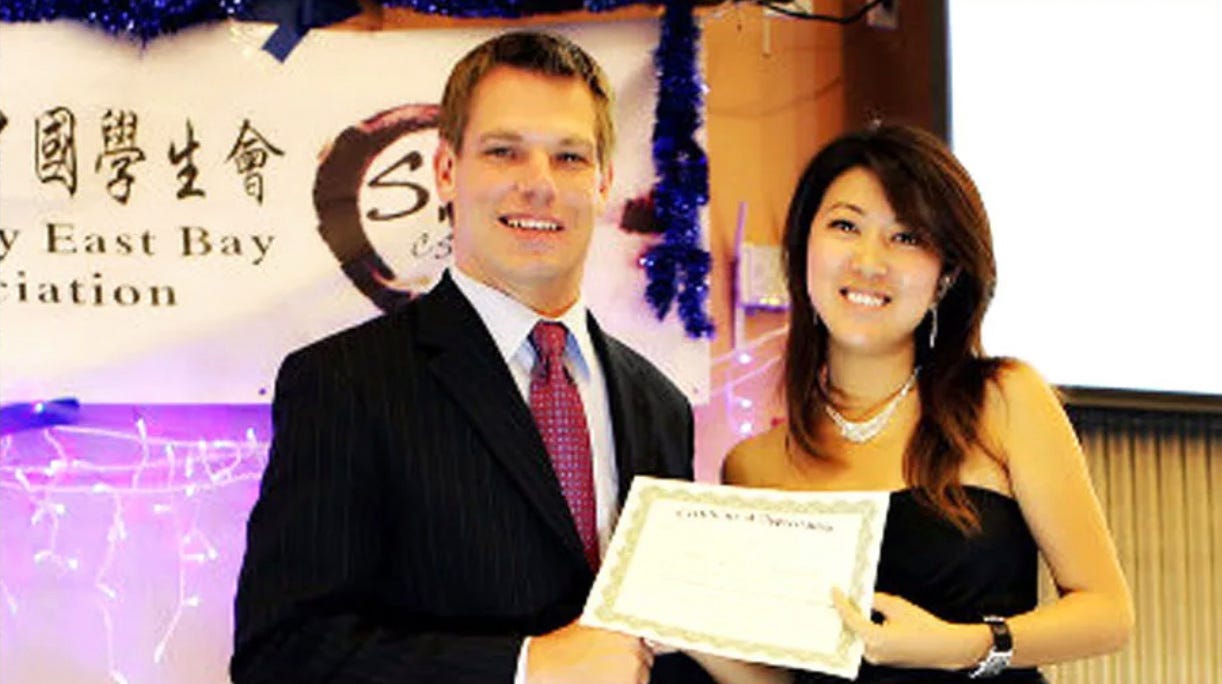As I Enter Politics Should I Go For The Honeypot Or The Book Deal?
I can’t quite decide which political office to run for. But before I make up my mind, I know I have to consider what perks I can get from the job.
Before I delve any further into this enthralling subject I’ll point out that I’m writing about an hour into April first. So please take with a grain of salt anything I say.
But if I were to run for office, it seems to me I’d have to choose carefully. Do I want to run for Congress and increase my chances of being befriended by an attractive Chinese spy? Or do I want to run for governor and increase my chances of signing a $4 million book deal?
The first option is, of course, the one from which California Congressman Eric Swalwell benefited. And apparently he was not the only California politician to be so tempted.
The second option is a reference to New York Governor Andrew Cuomo who reportedly was offered $4 million for his book deal.
Remember the circa 1980s American Express ad campaign, “Membership has its privileges?” It seems it applies to politicians as well. But should it?
Politicians are supposed to be public servants. But it seems that many elected officials focus first on personal privilege.
In his 1970 essay, “The Servant As Leader” Robert K. Greenleaf wrote, “A servant-leader focuses primarily on the growth and well-being of people and the communities to which they belong.“ This obviously contrasts with the concept of a leader embracing the privilege of his or her position. If the public is helped along the way well, that’s a welcome but perhaps unexpected outcome.
In my decades of reporting I have found a handful of politicians who really represented Greenleaf’s concept. One who often comes to mind is Thomas J. Coogan, who was first elected as mayor of Melvindale Michigan in 1977 and then re-elected in 1979, 1981, 1983, 1985, 1987, 1989, 1991 and 1993.
What was the secret to his success? Coogan was a public servant in every sense of the word. He owned a barbershop in town so everyone knew the best way to get the mayor’s ear was to just walk into his shop and talk to him.
One day when I stopped by to interview Coogan, a man walked in while he was cutting a customer’s hair. Coogan excused himself and turned to his constituent who complained, if recollection serves, that his garbage had not been picked up on schedule that day. Coogan asked the man to wait and then reached for a phone that had no dial on it. It was his direct line to his secretary at City Hall.
Coogan told the secretary to call the person responsible for garbage collection and make sure a truck is immediately dispatched to the man’s house. He then told the guy that if his garbage wasn’t picked up within the hour to call him back. And finally, he apologized that it had not been collected.
Not only was Coogan motivated to actually serve his community, he possessed the kind of humility that allowed for him to do it without his pride or his ego getting in the way of the job. And the citizens rewarded him by electing him to office nine times in a row!
But today, when we talk about politicians, it’s not the Tom Coogan’s who come to mind. Instead it’s people like Swalwell and Cuomo who are perceived as using their positions to their personal advantage.
As for me, I was leaning toward running for Congress because the Chinese government would try to influence me by sending me women. I’d never have to ask a woman out on a date again!
But then a female colleague suggested I should run for governor because if that leads to a $4 million dollar book deal I’ll have women asking me out. And I’d also have all that money to play with.



